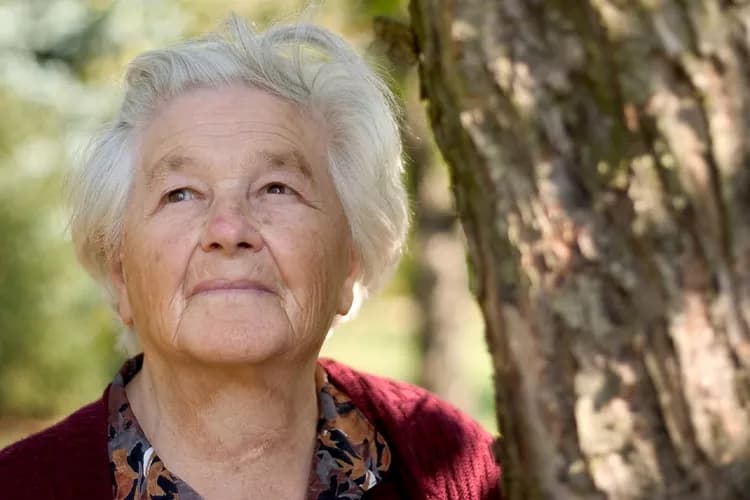
New Study Shows Cancer Drug Could Improve Memory in Alzheimer’s Disease
Alzheimer’s disease (AD) is a progressive neurodegenerative disorder characterized by the formation of plaques and neurofibrillary tangles. These plaques and tangles result in interrupted neuron-neuron connections, leading to problems with cognition and memory in AD patients.
Using a technique called immunohistochemistry, scientists have previously reported intense expression of an enzyme called fyn tyrosine kinase in the neurons of AD brains. This appears to be triggered by the amyloid β protein, which is a component of the characteristic “plaque” formation in AD brains. Interestingly, the same neurons expressing the fyn tyrosine kinase also overexpressed a hyperphosphorylated form of a microtubule-associated protein, tau. This abnormality leads to neurofibrillary tangles and accumulation of the toxic tau protein. Thus, an abnormal amyloid β-fyn-tau axis appears to be significant to the plaque formation and neurofibrillary tangles in AD brains.
A research group at Yale University, led by Dr. Stephen Strittmatter, reports in the Annals of Neurology that a drug has been able to target the fyn tyrosine kinase and improve memory in a mouse model of AD. For this study, the researchers used a tyrosine kinase inhibitor AZD0530 developed by AstraZeneca for the treatment of multiple tumor types. AZD0530 is an inhibitor of the Src family of tyrosine kinases. The Src family of tyrosine kinases is a non-receptor protein tyrosine kinase oncogene family, of which fyn is a member.
After four weeks of treatment, mice treated with the compound AZD0530 were compared to untreated mice with AD. The results showed that treatment with this anti-carcinogenic compound
- Inhibits fyn tyrosine kinase
- Prevents amyloid β oligomer induced fyn signaling
- Decreases inflammation
- Rescues tau phosphorylation
- Reverses memory deficits
- Rescues neuron-neuron connections
More importantly, the researchers did not observe any indications of chronic toxicity in mice following treatment with this compound.
The results of repurposing an anti-carcinogenic compound for the treatment of AD are promising. As of June 2014, a clinical trial for AD with AZD0350 has already been completed to test for the safety and tolerability in humans. Although the results have not been made public yet, the trial may bode well for individuals suffering from AD.
Written by Mangala Sarkar Ph.D.
Primary Reference:
Adam C. Kaufman, Santiago V. Salazar, Laura T. Haas, Jinhee Yang, Mikhail A. Kostylev, Amanda T. Jeng, Sophie A. Robinson, Erik C. Gunther, Christopher H. van Dyck, Haakon B. Nygaard, Stephen M. Strittmatter. Fyn inhibition rescues established memory and synapse loss in Alzheimer mice. Annals of Neurology, published online on March 21, 2015.
Additional References:
Sarkar, M. (2015 Mar 17). New Discovery Could Influence Treatment for Alzheimer’s Disease. Retrieved from http://www.dovemed.com/current-medical-news/new-discovery-influence-alzheimers-disease/
(2015 Mar 12). Tau/AB42 Cerebrospinal Fluid Test. Retrieved from http://www.dovemed.com/taua42-cerebrospinal-fluid-test/
Shirazi, S. K. & Wood, J. G. (1993). NeuroReport, 4(4), pp. 435-437.
LaFerla, F. M. (2008 May). Amyloid-B and tau in Alzheimer’s disease. Retrieved from http://www.nature.com/nrn/posters/ad/index.html
Roberson, E. D., et al. (2011). Journal of Neuroscience, 31(2), pp 700-711.
(2006 Jun 8). AstraZeneca Outlines Strategy to Further Strengthen Its Product Pipeline While Delivering Continued Sales and Earnings Growth. Retrieved from http://www.astrazeneca.com/Media/Press-releases/Article/20060608--AstraZeneca-Outlines-Strategy-to-Further-Strengthen-I
Strittmatter, S. M. (2014 Jun). Safety and Tolerability of AZD0530 (Saracatinib) in Alzheimer’s Disease. Retrieved from https://clinicaltrials.gov/ct2/show/NCT01864655?term=Strittmatter&rank=1
Related Articles
Test Your Knowledge
Asked by users
Related Centers
Related Specialties
Related Physicians
Related Procedures
Related Resources
Join DoveHubs
and connect with fellow professionals

0 Comments
Please log in to post a comment.